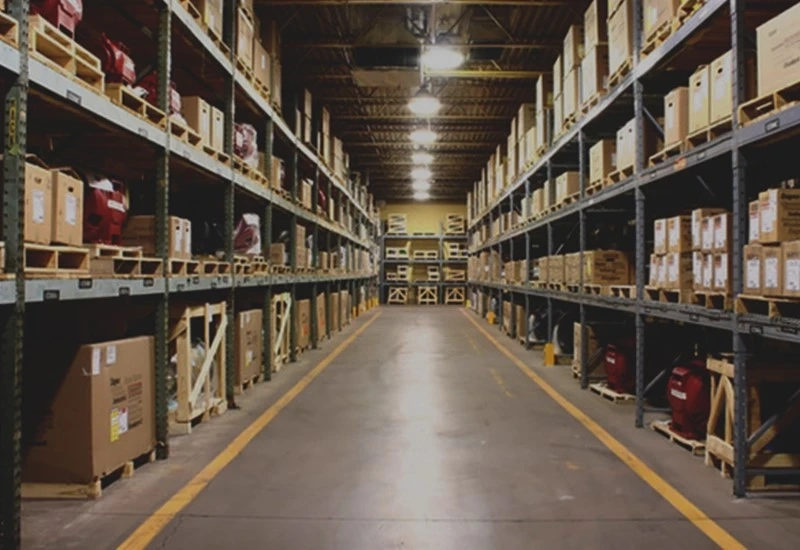In the world of industrial sealing, choosing the right gasket for high-pressure systems is critical to ensuring both operational efficiency and safety. Gaskets play a pivotal role in preventing leakage, maintaining pressure integrity, and accommodating the thermal and mechanical stresses typical of high-pressure environments. Among the various gasket types available, spiral wound metal gaskets have emerged as one of the most reliable solutions for sealing in high-pressure applications. These gaskets are engineered to perform under extreme conditions, offering durability, flexibility, and resistance to high temperatures and pressure. In this article, we will explore why spiral wound metal gaskets are ideal for high-pressure systems and what makes them stand out from other gasket types.
1. Understanding Spiral Wound Metal Gaskets
A spiral wound metal gasket is a unique type of sealing component that combines metal strips and filler material wound in a spiral pattern. The metal strips provide the gasket with strength and resilience, while the filler material—typically made of graphite, PTFE, or other soft materials—helps achieve a tight seal. The result is a gasket that offers excellent sealing performance under various operating conditions, especially in high-pressure environments.
These gaskets are designed to offer a high degree of compressibility and flexibility, making them adaptable to various flange types and sizes. Spiral wound metal gaskets can be used across industries such as chemical processing, petrochemicals, oil and gas, and power generation, where high-pressure systems are common.
2. Pressure Resistance and Durability
One of the primary reasons spiral wound metal gaskets are preferred for high-pressure systems is their exceptional ability to withstand extreme pressure. High-pressure systems demand sealing solutions that can endure significant forces without failing. The metal strips in the spiral wound gasket provide mechanical strength, while the wound design distributes pressure evenly across the gasket’s surface. This characteristic allows the gasket to withstand extreme compressive forces, maintaining an effective seal even in high-pressure environments.
Moreover, these gaskets are highly durable, offering long service life in conditions where other gaskets may degrade or fail. The combination of metal and resilient filler material ensures that spiral wound gaskets can handle both internal pressure and external forces such as thermal expansion and vibration. For high-pressure applications, this means reduced maintenance needs and a minimized risk of leakage, which is essential for both safety and operational efficiency.
3. Temperature Tolerance
High-pressure systems are often coupled with high-temperature conditions, further complicating the sealing process. Conventional gaskets may not perform well under both pressure and temperature extremes, leading to leakage, premature wear, or failure. Spiral wound metal gaskets, however, are specifically designed to handle high temperatures and pressures.
The metal strips in the spiral wound gasket provide superior heat resistance, while the filler material can be chosen based on the required temperature tolerance. For instance, graphite-based fillers offer excellent performance at high temperatures, while PTFE fillers provide chemical resistance. This versatility in material selection allows spiral wound gaskets to maintain sealing integrity in high-temperature systems, such as steam pipelines or reactors, without compromising performance or safety.
4. Flexibility in Application
One of the standout features of spiral wound metal gaskets is their flexibility. High-pressure systems often involve complex geometries, and flange surfaces may not always be perfectly smooth or uniform. Spiral wound gaskets, with their ability to conform to imperfections in flange surfaces, create a tighter seal compared to many other gasket types. This flexibility ensures that the gasket can adapt to various flange sizes and surface conditions, making it a versatile choice for a wide range of high-pressure applications.
Additionally, the gasket’s spiral design allows it to handle both lateral and axial loads, making it highly effective in systems with vibrations or dynamic forces. This adaptability is one of the key reasons spiral wound gaskets are preferred in industries with high-pressure systems subject to fluctuating conditions.
5. Leak Prevention and Safety
In high-pressure systems, leaks can lead to catastrophic consequences, including environmental damage, equipment failure, or even safety hazards for personnel. For this reason, it’s vital to use a gasket that can effectively prevent leaks, even under extreme conditions. Spiral wound metal gaskets excel at this by forming a strong, leak-proof seal.
The gasket's design allows for uniform pressure distribution, which ensures that the sealing surface remains intact despite fluctuating pressure or temperature changes. This capability helps to prevent gas, liquid, or other harmful substances from escaping the system, thereby ensuring operational safety and compliance with industry regulations.
6. Cost-Effectiveness and Availability
While the initial cost of a spiral wound metal gasket may be higher than some other gasket types, its long-term cost-effectiveness cannot be overlooked. Due to their durability and resistance to wear, these gaskets often require fewer replacements and less maintenance over time. This can translate to significant cost savings for companies that rely on high-pressure systems.
Additionally, spiral wound gasket suppliers typically offer a wide range of sizes, materials, and customization options to meet specific operational needs. Whether a high-pressure system is dealing with corrosive substances or extreme temperatures, suppliers can provide the right gasket solution tailored to the application. The wide availability of these gaskets makes them a practical and reliable option for industries around the world.
7. Easy Installation and Maintenance
Spiral wound metal gaskets are designed for easy installation and maintenance, which is particularly advantageous in high-pressure systems where downtime is costly. Their flexible design means they can easily accommodate different flange types, and their robust construction ensures that once installed, they will provide a long-lasting seal. Furthermore, the ability of spiral wound gaskets to handle dynamic loads and thermal cycles reduces the need for frequent maintenance, which can be labor-intensive and expensive in high-pressure systems.
The process of maintenance or replacement is straightforward, and gasket suppliers can often provide guidance on the proper installation techniques to maximize gasket life and sealing performance.
Conclusion
In high-pressure systems, choosing the right gasket is a critical decision that directly impacts system performance, safety, and longevity. Spiral wound metal gaskets offer a unique combination of strength, flexibility, temperature tolerance, and resistance to pressure that make them an ideal choice for demanding applications. From their ability to withstand extreme forces and temperatures to their leak prevention capabilities and cost-effectiveness, spiral wound gaskets provide an unparalleled sealing solution for high-pressure environments.
For companies involved in high-pressure systems, partnering with reputable spiral wound gasket suppliers is essential to ensure they receive high-quality, customized gaskets that meet their specific needs. By choosing spiral wound metal gaskets, businesses can enhance the reliability and efficiency of their systems, minimize downtime, and ensure the safety of both personnel and the environment.


